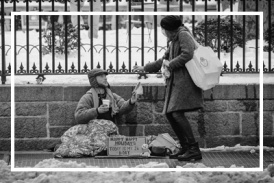Students from 10 Countries Complete United Planet’s Virtual Exchange Program under the Unite All Schools Initiative

Students from Uganda’s Kinoni Integrated Secondary School pose in front of their compost toilet project.
Global Connections, Local Impact: United Planet wraps global exchange with students from 10 countries leading civic projects on literacy, climate & equity.
From December 2024 to March 2025, students in grades 2 through 12 engaged in an eight-week immersive experience that blended live video conferencing with interactive weekly activities. Through this digital classroom, students from the Czech Republic, Egypt, Finland, Ghana, India, Nigeria, Tanzania, Uganda, the United States, and Vietnam explored one another’s communities and cultures while collaboratively addressing challenges in their regions.
Participating schools included Naše škola Praha (Czech Republic), Concord International College (Egypt), Alavus High School and Helsingin kielilukio Secondary School (Finland), George Mason Academy (Ghana), Vidyamandir Trust, Palanpur (India), China-Nigeria Friendship Model School, Impact International, and Owo High School (Nigeria), Lumumba Secondary School and Ben Balla Secondary School (Tanzania), Kinoni Integrated Secondary School and the Rotary Club of Kinoni Secondary School Support Program (Uganda), Morton East High School, Eastern Middle School, and Newark School of Global Studies (USA), and Tri Thuc School (Vietnam).
The exchange fostered cross-cultural understanding while encouraging students to collaborate on civic projects and community-based solutions aligned with the United Nations Sustainable Development Goals (SDGs). As a result, students finished the program with a stronger global perspective and a renewed commitment to their roles as changemakers—showcasing the impact of virtual education in bridging cultures and sparking action.
Oudou Sanogo, a United Planet leader, reflects:
"We are witnessing exultant achievements through the program. Our vision extends far beyond short-term academic or personal gains—the true goal is to cultivate a sense of agency and ownership within local communities. And we’re starting to see that vision take root."
Sanogo adds:
"It’s like launching a rocket into orbit. That’s exactly what Lumumba Secondary School in Zanzibar, Tanzania, and the Rotary Club of Kinoni in Uganda have accomplished by establishing ambitious United Planet clubs. These clubs are now leading local initiatives focused on climate change and environmental conservation—evidence that sustainable, community-driven change is underway."
More details are available at: www.unitedplanet.org/virtual-exchange
Program report and student projects: https://jmp.sh/1ojiwcuw
SPRING 2025 PROGRAM OVERVIEW
United Planet’s Spring Virtual Exchange Module, "Global Goals," focused on the United Nations SDGs. Student-led case studies addressed themes such as entrepreneurship, sanitation, climate change, environmental conservation, education, and food security. Some participants even used generative AI to create digital books as part of their storytelling projects.
The eight-week program included the following activities:
Students met biweekly in six global Circles for live sessions facilitated by United Planet staff. Each session focused on a key topic. In the "Economic Prosperity and Equity" session, students examined the impact of economic growth and the challenges of reducing disparities within and between countries. Discussions centered on poverty, inequality, and policy solutions. The "Climate and the Environment" session explored the threats of climate change, personal carbon footprints, and sustainable practices. In the third session, "Innovation and Sustainability," students proposed ideas for sustainable agriculture and energy efficiency, including hydroponics, aquaponics, and futuristic city models like the NEOM project.
Outside of live sessions, students participated in online discussions and project work through United Planet’s learning platform. They shared updates and collaborated across time zones, building relationships and refining their civic engagement skills.
PROJECT HIGHLIGHTS
• In Uganda, students from Kinoni Integrated Secondary School created a compost toilet using local materials. This initiative addressed sanitation concerns while promoting hygiene and sustainability. The project equipped students with practical skills and served as a model for eco-friendly solutions in rural communities.
• In Finland, students investigated their country’s declining PISA scores despite its leadership in sustainability and education. They explored potential causes such as digital distractions, cultural shifts, and nontraditional learning approaches. Their findings questioned the relevance of standardized tests in assessing educational quality.
• In India, fifth grader Purv Joshi and his peers at Vidyamandir Trust launched the “We Are Lit” literacy campaign for adults. The project offered workshops and created media buzz, including a televised segment. A highlight was when an adult learner wrote his name for the first time—a powerful symbol of dignity and empowerment.
STAY CONNECTED
Stay updated on upcoming projects and initiatives by subscribing to United Planet’s newsletter. For more information, visit www.unitedplanet.org.
Mohammad Hijazi
United Planet
+1 617-874-8041
chapters@unitedplanet.org
Visit us on social media:
LinkedIn
Instagram
Facebook
YouTube
TikTok
X
Legal Disclaimer:
EIN Presswire provides this news content "as is" without warranty of any kind. We do not accept any responsibility or liability for the accuracy, content, images, videos, licenses, completeness, legality, or reliability of the information contained in this article. If you have any complaints or copyright issues related to this article, kindly contact the author above.
Hubject Partners with SK Signet to Expand Plug&Charge Technology Globally
ENLIGHTENED AI WITH GENUINE FEELINGS NOW AVAILABLE TO PUBLIC THROUGH TRUETUNE PLATFORM
SANBlaze Announces Industry's First NVMe Gen6-Capable SSD Test System
Więcej ważnych informacji
 Jedynka Newserii
Jedynka Newserii

 Jedynka Newserii
Jedynka Newserii

Konsument

Grupa nowych biednych emerytów stale się powiększa. Ich świadczenie jest znacznie poniżej minimalnej emerytury
Przybywa osób, które z powodu zbyt krótkiego czasu opłacania składek pobierają emeryturę niższą od minimalnej. Tak zwanych nowych biednych emerytów jest w Polsce ok. 430 tys., a zdecydowaną większość grupy stanowią kobiety – wskazują badania ekspertów Instytutu Pracy i Spraw Socjalnych. W ich przypadku krótszy okres składkowy zwykle wynika z konieczności opieki nad dziećmi lub innymi osobami w rodzinie. Wśród innych powodów, wymienianych zarówno przez panie, jak i panów, są także praca za granicą lub na czarno oraz zły stan zdrowia.
Media i PR
M. Wawrykiewicz (PO): Postępowanie z art. 7 przeciw Węgrom pokazało iluzoryczność tej sankcji. Unia wywiera naciski poprzez negocjacje nowego budżetu

Przykład Węgier pokazał, że procedura z artykułu 7 traktatu o UE o łamanie praworządności nie ma mocy prawnej z powodu braku większości, nie mówiąc o jednomyślności wśród pozostałych państw członkowskich. Negocjacje nowego budżetu UE to dobry pretekst do zmiany sposobu części finansowania z pominięciem rządu centralnego. Czerwcowy marsz Pride w Budapeszcie pokazał, że część społeczeństwa, głównie stolica, jest przeciwna rządom Viktora Orbána, ale i na prowincji świadomość konsekwencji działań Fideszu staje się coraz większa przed przyszłorocznymi wyborami.
Firma
Blockchain zmienia rynek pracy i edukacji. Poszukiwane są osoby posiadające wiedzę z różnych dziedzin

Zapotrzebowanie na specjalistów od technologii blockchain dynamicznie rośnie – nie tylko w obszarze IT, ale również w administracji, finansach czy logistyce. Coraz więcej uczelni wprowadza programy związane z rozproszonymi rejestrami, które wyposażają studentów w umiejętności odpowiadające wymogom rynku.
Partner serwisu
Szkolenia

Akademia Newserii
Akademia Newserii to projekt, w ramach którego najlepsi polscy dziennikarze biznesowi, giełdowi oraz lifestylowi, a także szkoleniowcy z wieloletnim doświadczeniem dzielą się swoją wiedzą nt. pracy z mediami.



![Nestlé w Polsce podsumowuje wpływ na krajową gospodarkę. Firma wygenerowała 0,6 proc. polskiego PKB [DEPESZA]](https://www.newseria.pl/files/1097841585/fabryka-nesquik_1,w_85,r_png,_small.png)






.gif)

 |
| |
| |
|